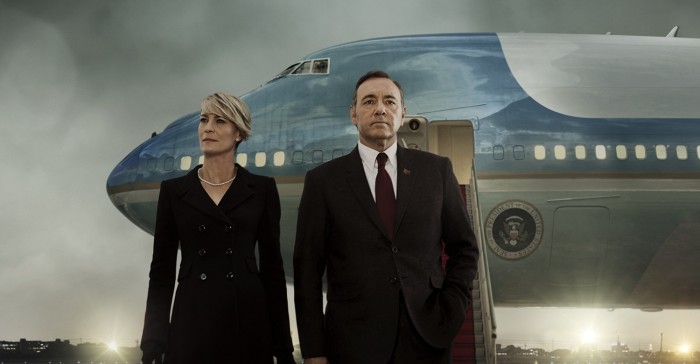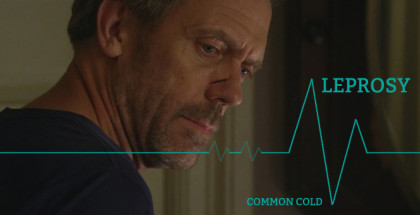Netflix UK TV review: House of Cards Season 3, Episode 11, 12 & 13
Review Overview
Endings
9Loose ends
10Endgames
10Chris Bryant | On 07, Mar 2015
Warning: This contains some spoilers, although it avoids ruining major plot points.
President Francis Underwood, after a season of battling on all fronts, is finally faced with the end of the road. He’s confronted by the one challenge that no one could predict the outcome of. The final three episodes are confidently executed as a crescendo of emotion – righteous or otherwise.
First, he has to establish himself as a viable candidate for the 2016 election race of which the next step is a televised debate opposite Jackie Sharp and Heather Dunbar. Colluding with Sharp, he plans to attack Dunbar on all fronts. After Jackie received a patented Underwood reprimand for questioning his tactics, though, she offers to sell her services to Dunbar, who refuses. “I want to win,” she declares. “But not your way.”
The successful debate sparks a series of blows to the President, including the departure of Remy. It causes less trouble for Underwood than other losses but is 10 times more impressive to watch. Minimally written, Danton resigns with trademark calmness; Mahershala Ali’s performance has never been better or more pleasurable to watch; he’s comfortable, certain and convincing, just as Remy always has been. Later, what could be his last appearance is a firework display of closure, as Jackie arrives at his door – the result may be the best non-Underwood scene House of Cards has ever crafted. Scripted meticulously and performed with the flowing tension present in all of their dialogues, Ali and Molly Parker (Sharp) bring to life the final loop on their roller coaster of aching romance.
Although not his deadliest conflict, Frank’s most obvious battle is with Heather Dunbar. After his dismissal of Claire from her UN post, she’s free to aid his campaign trail and, with her approval ratings twice his, it’s no surprise that he brings her to the forefront of the effort. It’s logical and pragmatic and her distaste for the idea is thinly veiled. In response, Dunbar decides to bring out her trump card: Doug Stamper, whose true colours lead to one of the more joyful moments in the final episodes. Meeting with Frank, Dunbar – portrayed by Elizabeth Marvel, whose proud, stern glare really could topple governments – explains the situation. In spite of the threat, the President basks in her last-ditch weakness; Spacey’s uniquely channelled vitriol spares no second in revealing his character’s true feelings.
The First Lady, meanwhile, is confronted by her own personal problems. Having suppressed her conscience and dreams for so long, hearing a stranger on the campaign trail speak honestly about love (“I could start over”) revolutionises her. Robin Wright impresses once more, displaying her nerve both in front of the camera and (as director of Chapter 38) behind; under her control, one of the strongest, toughest TV characters around visibly unravels. Few words can commend Wright to the degree she deserves, but every viewer watching Claire Underwood will admit that, even though her character exploration is fascinating and emotive, they are still as terrified by her as they are turned on.
In contrast, Yates’ story arc (and voiceover) seems to celebrate their relationship. After joining Claire at a PR stunt, he gains a better understanding of her role. Having submitted the first chapter of his novel, the audience are treated to a still Frank, sitting in front of a fire, as the author’s peaceful tones read an insightful story about the two. It acts as homage to the Underwoods, but it’s also a subtle love poem from the writers of the show, describing Beau Willimon’s creations objectively, passionately and with complete awareness. The anti-hero himself, of course, despises it. It is off-message and suggests weakness. Yates’ lover, Baldwin, cannot help. “He’s the President. He’ll crush you,” she warns. Having had such an insight into the Presidential partnership, it would be no surprise to see Yates causing Frank and Claire issues in the future – that is, if there is one.
Chapter 39, the final episode, follows only two stories. With Willimon himself only writing the first and final episodes of this season, it’s a bold and satisfying move; a chapter about endings, and loose ends. With both House of Cards the books and the original series released in three parts, this final episode of Season 3 needed something staggering. As always with Netflix’s show, it is provided. Past all the witticisms, the colourful threats and this season’s vicious political battles, Season 3 has been built solely on love. In several interviews, Willimon has said this isn’t a show about politics, but about marriage – and all that becomes clear.
One half is dominated by Doug and Rachel – who was always the most important person to be found in Russo’s passenger seat in Season 1. For every second Michael Kelly was likably watching movies with his brother, or playing with children, or desperately relapsing, this episode gives back tenfold Doug being his unstoppable self.
Claire and Francis, naturally, fill the rest. Troubled, distant, sidelined and undervalued, Claire voices her issues to her husband. Their discussion, powerful and barely believable, is also arguably unnecessary. Once more, Frank has spent a season clawing his way to a goal, by any means necessary. While he continues his campaign, Claire wishes to go out to jog, but instead drags out Francis’ rowing machine, which he once used while he was plotting, and starts rowing. It’s a commanding image.
Netflix subscribers around the world will speculate over the final moments of the season. They’re profoundly meaningful, unexpected and, of course, mercilessly delivered. We’re reminded, at the end, that houses of cards are prone to falling.
All 13 episodes of House of Cards Season 3 are available to watch on Netflix UK, as part of an £9.99 monthly subscription.
Photos: David Giesbrecht for Netflix



















